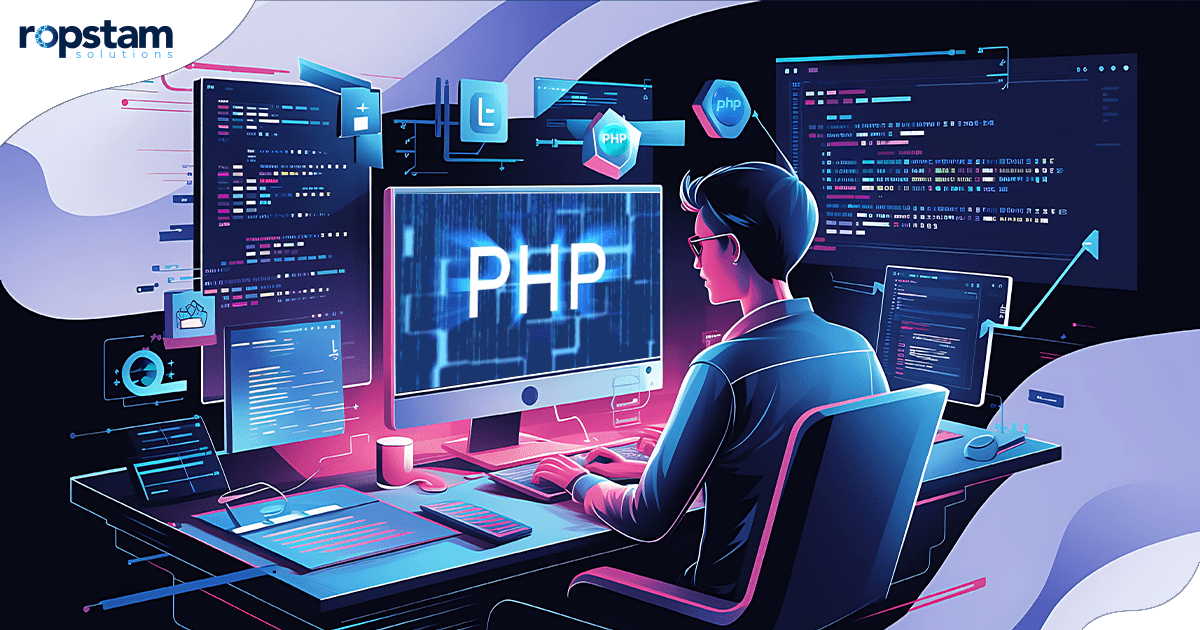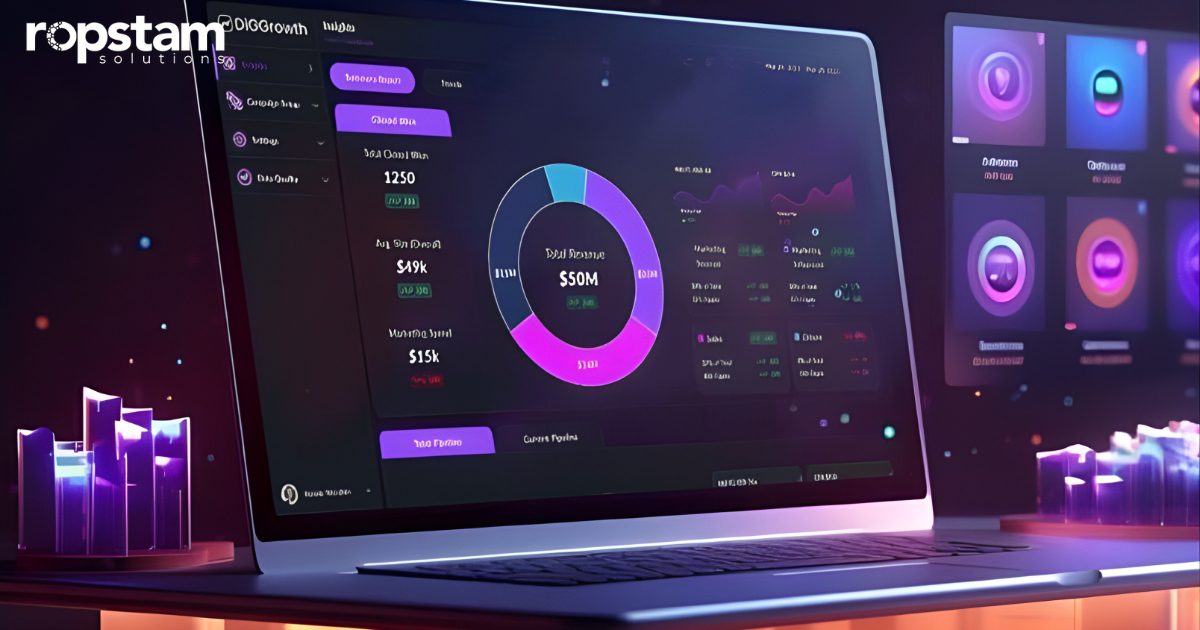In today’s day and age, PHP stands tall as one of the most powerful server-side programming languages – this goes without saying. This versatile scripting language has been the foundation of countless websites and web applications for years, from small business sites to tech giants like Facebook.
As more businesses recognize the need for dynamic, data-driven websites, the demand for skilled PHP developers has increased exponentially. That means the hiring process for PHP developers must be stringent as well.
One must remember that hiring skilled PHP developers is not as simple as it sounds. This is where this article comes in. Whether you are a business owner looking to launch a PHP-based website or a project manager overseeing your latest project, this article will help you hire the most qualified PHP developers in the region. So, let’s get started!
What is PHP?
PHP, or Hypertext Preprocessor, is a versatile server-side scripting language that has been a cornerstone of web development since its inception in 1994. Known for its ease of use and powerful capabilities, PHP has evolved to become one of the most widely used programming languages for creating dynamic web content.
It is pertinent to state here that as a server-side scripting language, PHP is designed to integrate with HTML, allowing developers to embed PHP code directly into web pages. This unique feature sets PHP apart from many other back-end technologies, enabling the creation of interactive and responsive websites with minimal fuss.
PHP vs JavaScript
While often compared to JavaScript, PHP serves a distinct purpose in the web development ecosystem. Where JavaScript primarily handles client-side interactions, PHP excels in server-side processing. This makes PHP the go-to choice for tasks such as database operations, file handling, and server-side logic. When hiring for your PHP-based projects, you’ll typically be looking for back-end developers or full-stack engineers who can harness the power of this language.
PHP vs Python
It’s worth noting that while PHP and Python share some similarities as object-oriented, interpreted scripting languages, they each have their strengths. PHP’s tight integration with web technologies gives it an edge in web development scenarios, while Python often shines in areas like data analysis and machine learning.
PHP as a Cross-Platform Language
But that’s not all! PHP’s versatility extends beyond web development. It’s also regarded as a useful cross-platform language, capable of running on various operating systems including Linux, Windows, and macOS. This flexibility has led to its adoption in desktop application development and even, in some cases, mobile app creation through frameworks like PhoneGap or Xamarin.
Rising Popularity of PHP
Given that web technologies continue to evolve, it would be an understatement to mention that PHP has kept pace, introducing improvements with each version. Thanks to the language’s large and active community, there is a wealth of resources offered, from extensive documentation to third-party libraries. This is what primarily makes PHP a highly attractive option for developers of varying skill levels.
How to Choose The Right PHP Developer
Thanks to the expertise of our talented PHP developers, here we will delineate the factors that you should consider while selecting the PHP developers.
- Justifiable Industry Experience
- Technical Prowess
- Portfolio of Previous Projects
- Valid References
- Cross-Team Collaboration
- Ability to Handle Deadlines
1. Justifiable Industry Experience
When hiring a PHP developer, industry experience is crucial. Look for candidates who have worked on projects similar to yours in scale and complexity. Their experience should demonstrate a deep understanding of PHP’s application in your specific industry.
Developers with relevant experience can anticipate challenges, suggest efficient solutions, and bring valuable insights from past projects. They’re likely to be familiar with industry-specific tools, frameworks, and best practices, which can significantly streamline your development process and lead to better outcomes.
2. Technical Prowess
A strong PHP developer should possess a comprehensive skill set that goes beyond basic PHP coding. Look for proficiency in PHP frameworks like Laravel, Symfony, or CodeIgniter. They should be well-versed in database management systems, particularly MySQL. Knowledge of front-end technologies like JavaScript, HTML, and CSS is also valuable. Assess their understanding of PHP 7 and 8 features, object-oriented programming principles, and RESTful API development.
3. Portfolio of Previous Projects
A developer’s portfolio is a window into and exemplifies cases of their capabilities and style. It should showcase a range of projects that demonstrate their versatility and problem-solving skills. Look for projects that align with your needs – whether it’s e-commerce platforms, content management systems, or custom web applications. Pay attention to the complexity of these projects, the technologies used, and the results achieved.
A strong portfolio should not only display technical skills but also creativity and the ability to deliver polished, user-friendly solutions.
4. Valid References
Providing invaluable insights into a developer’s work ethic, and ability to produce results are reliable references. That’s why as a PHP developer recruiter, reach out to past employers or clients to verify the developer’s claims and gather feedback on their performance. Ask about their strengths, areas for improvement, ability to meet deadlines, and how they handle challenges.
Valid references can also give you a sense of the developer’s communication skills and how well they work within a team. This information helps you make a more informed decision and reduces the risk of hiring someone who doesn’t meet your expectations.
5. Cross-Team Collaboration
In today’s interconnected development environments, the ability to collaborate effectively across varying teams is essential. A PHP developer should be able to work effectively with front-end developers, designers, project managers, and other stakeholders. Look for candidates who demonstrate strong communication skills, both written and verbal. They should be able to explain complex technical concepts to non-technical team members.
To summarize, a developer who can collaborate effectively will integrate smoothly into your team and contribute to a more productive work environment.
6. Ability to Handle Deadlines
It goes without mentioning that as a PHP developer, meeting project deadlines is of utmost importance in web development. When evaluating PHP developers, assess their track record of delivering projects on time. Seek candidates who demonstrate good time management skills and the ability to prioritize tasks effectively.
To extend this debate, experience with agile methodologies can be beneficial, as it indicates familiarity with iterative development and regular delivery cycles. To claim that a developer who can consistently meet deadlines will help you maintain client satisfaction is an understatement.
The Bottom Line
When kickstarting your next web development project, hiring the most suitable and qualified PHP developer could prove to be the difference between a high-performing and unsuccessful PHP-based website. That is why you must keep certain factors in mind and evaluate the candidates in a rigorous hiring process.













